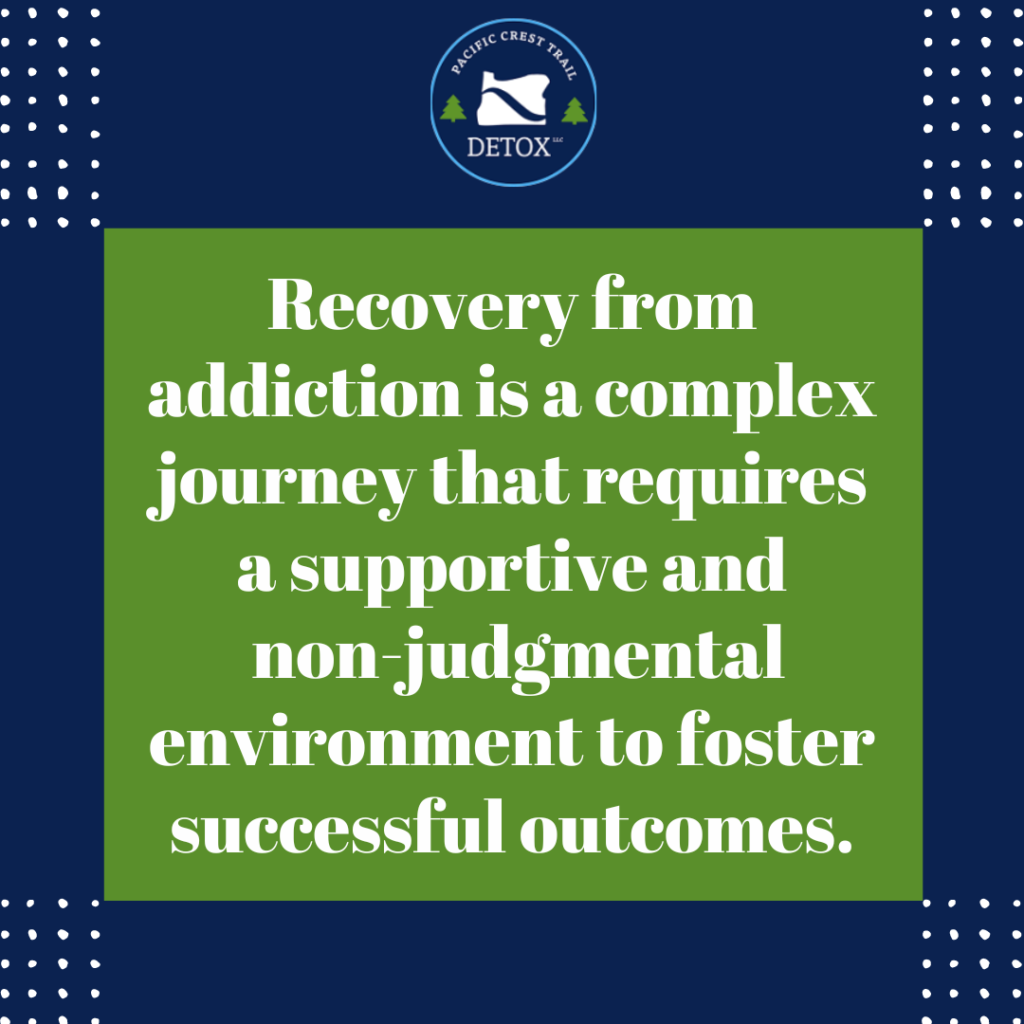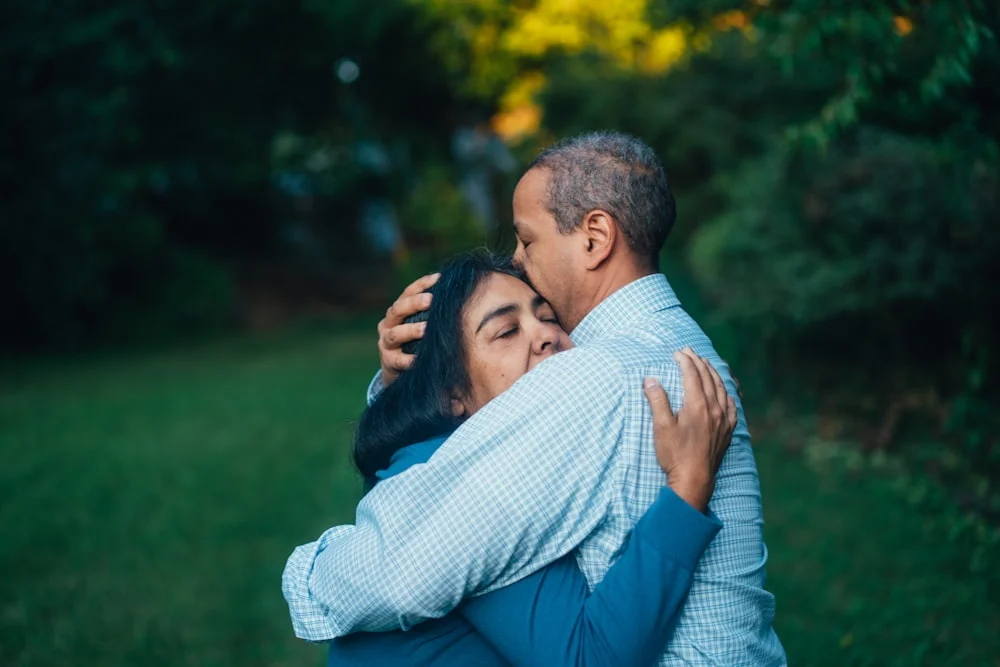Showing support in addiction recovery journey requires a deep sense of understanding, unwavering empathy, and a genuine desire to help them overcome their struggles.

By acknowledging the complexity of addiction, we can better grasp their challenges and provide them with the necessary support. When individuals have a solid support system, they are more likely to navigate recovery with ease.
With that said, let’s explore practical strategies and insights to help you effectively support your loved one’s addiction recovery. By providing proper guidance, encouragement, and understanding, you can play a pivotal role in their path to healing.
Understanding Addiction Recovery
Addiction recovery involves physical, psychological, and emotional healing. It is a process of reclaiming one’s life and building a foundation for a healthier future.
Creating a supportive environment is crucial for individuals in recovery. They need to feel safe, understood, and accepted. Thus, you must approach their journey without judgment or criticism. To help them navigate the challenges they may encounter, you must shoe empathy and compassion.
Recovery is not a linear process, and setbacks or relapses can occur. You must be patient and understanding during these times. Offering support for recovering addicts without enabling harmful behaviors is a delicate balance that requires clear boundaries and effective communication.

Practical Ways to Help Support in Addiction Recovery
In this section, we will explore practical ways to support someone in addiction recovery. From education and encouragement to creating a sober environment and promoting self-care, these strategies can positively impact their journey toward lasting wellness.
- Educate Yourself: Learn about addiction, recovery, and the challenges that individuals face. By expanding your knowledge in these areas, you will be better equipped to provide compassionate support.
- Be a Source of Encouragement: Offer words of encouragement and praise their progress. Celebrate milestones and small victories to boost their confidence.
- Create a Sober Environment: Minimize temptations by removing alcohol, drugs, and triggers from their surroundings. Encourage activities that promote a healthy and substance-free lifestyle.
- Attend Support Meetings: Accompany them to support group meetings, such as Alcoholics Anonymous (AA) or Narcotics Anonymous (NA). This shows your commitment to their recovery and provides additional encouragement.
- Be a Good Listener: Offer a non-judgmental ear and allow them to share their thoughts and struggles. Let them know you are there for them without trying to solve their problems.
- Set Boundaries: Establish clear boundaries to protect yourself and the individual in recovery. Ensure they understand your expectations and the consequences for violating those boundaries.
- Offer Practical Support: Assist with daily tasks, such as grocery shopping, cooking, or transportation, to alleviate stress and free up their time and energy for recovery-related activities.
- Help Them Build a Support Network: Encourage them to connect with others in recovery, such as through support groups or community programs. Offer assistance in finding local resources for addiction recovery..
- Be Patient: Recovery takes time, and setbacks may occur. Be patient and understanding, focusing on progress rather than perfection. Offer support during difficult times and remind them of their strengths.
- Promote Self-Care: Encourage healthy habits such as regular exercise, proper nutrition, and adequate sleep. Help them find activities they enjoy that promote overall well-being.
- Be Mindful of Triggers: Identify and avoid situations or people that may trigger cravings or negative emotions. Support them in finding alternative coping mechanisms or distractions.
- Stay Engaged: Stay involved in their recovery journey without being overbearing. Regularly check-in, ask how they’re doing, and offer assistance when needed.
- Advocate for Treatment: Help them navigate the healthcare system, find appropriate treatment options, and access necessary resources. Offer support in scheduling appointments and attending therapy sessions.
- Celebrate Sobriety Milestones: Acknowledge milestones, such as monthly anniversaries of sobriety or completion of treatment programs. Celebrate their commitment and progress.
- Be a Source of Hope: Remind them of their potential, dreams, and aspirations. Encourage them to visualize a fulfilling life in recovery and support them in working towards their goals.
Remember, each individual’s needs may vary, so adapt your approach based on their specific situation. Ultimately, your consistent support, understanding, and belief in their ability to recover can make a significant difference in helping them stay on the path to lasting sobriety.
Resources for Support in Addiction Recovery
When supporting someone in addiction recovery, it’s important to leverage the available resources that can provide additional assistance. Here are some valuable resources you can explore:
Online Platforms and Communities
Online platforms such as Sober Grid and In The Rooms offer virtual support groups, forums, and connections with individuals in recovery. These platforms provide a sense of community and a safe space for sharing experiences.
Support in Addiction Recovery: Helplines and Hotlines
National helplines like the Substance Abuse and Mental Health Services Administration (SAMHSA) Helpline (1-800-662-HELP) and the National Council on Alcoholism and Drug Dependence (NCADD) Helpline (1-800-NCA-CALL) provide confidential support, information, and referrals to treatment resources.
Local Support Groups for Addiction Recovery
Search for local chapters of organizations like Alcoholics Anonymous (AA), Narcotics Anonymous (NA), and SMART Recovery. These groups offer in-person meetings where individuals can connect with others facing similar challenges and benefit from shared experiences and support.
Community Organizations to Support in Addiction Recovery
Check out local community organizations specializing in addiction recovery support. They often provide counseling services, peer support, educational resources, and workshops on various recovery aspects.
Counseling and Therapy Services
Encourage your loved one to seek professional counseling or therapy services. Licensed therapists, addiction counselors, and psychologists can provide tailored support, coping strategies, and therapeutic interventions to aid recovery.
Treatment Centers and Rehab Facilities
Explore the nearest addiction centers and rehab facilities that offer comprehensive addiction treatment programs. They provide professional guidance, evidence-based therapies, and structured support systems to aid recovery.
Mental Health Services
Mental health plays a vital role in addiction recovery. Connect with mental health clinics, psychologists, or psychiatrists who can address co-occurring disorders and provide necessary treatment and support.
Giving support in addiction recovery requires understanding, empathy, and access to resources. By implementing practical strategies and leveraging available support systems, you can help them in their journey towards lasting sobriety. Remember to be a source of encouragement, set boundaries, and promote self-care.
Explore resources like online platforms, helplines, local organizations, and treatment centers to enhance your support. Keep educating yourself about addiction and recovery to refine your strategies. With your unwavering support, you can empower individuals to achieve a fulfilling life in recovery.For professional assistance and compassionate care, consider Pacific Crest Trail Detox. Their dedicated team is ready to provide the support your loved one needs on their path to recovery.

